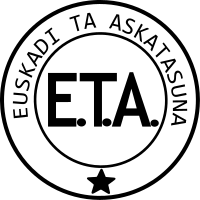
Photo from wikipedia
The Basque conflict was one of the last ethnonationalist violent struggles in Western Europe, until the self-dissolution in 2018 of ETA (Euskadi ta Askatasuna, Basque Country and Freedom). The role… Click to show full abstract
The Basque conflict was one of the last ethnonationalist violent struggles in Western Europe, until the self-dissolution in 2018 of ETA (Euskadi ta Askatasuna, Basque Country and Freedom). The role played by some sectors of the Roman Catholic Church in the mediation efforts leading to this positive outcome has long been underestimated, as has the internal pluralism of the Church in this regard. This article specifically examines the transnational dimension of this mediation, including its symbolic aspect. The call to involve the Catholic institution transnationally was not limited to the tangible outcomes of mediation. The mere fact of involving transnational religious and non-religious actors represented a symbolic gain for the parties in the conflict struggling to impose their definitions of peace. Transnational mediation conveyed in itself explicit or implicit comparisons with other ethnonationalist conflicts, a comparison that constituted political resources for or, conversely, unacceptable constraints upon the actors involved.
Journal Title: Religion
Year Published: 2020
Link to full text (if available)
Share on Social Media: Sign Up to like & get
recommendations!